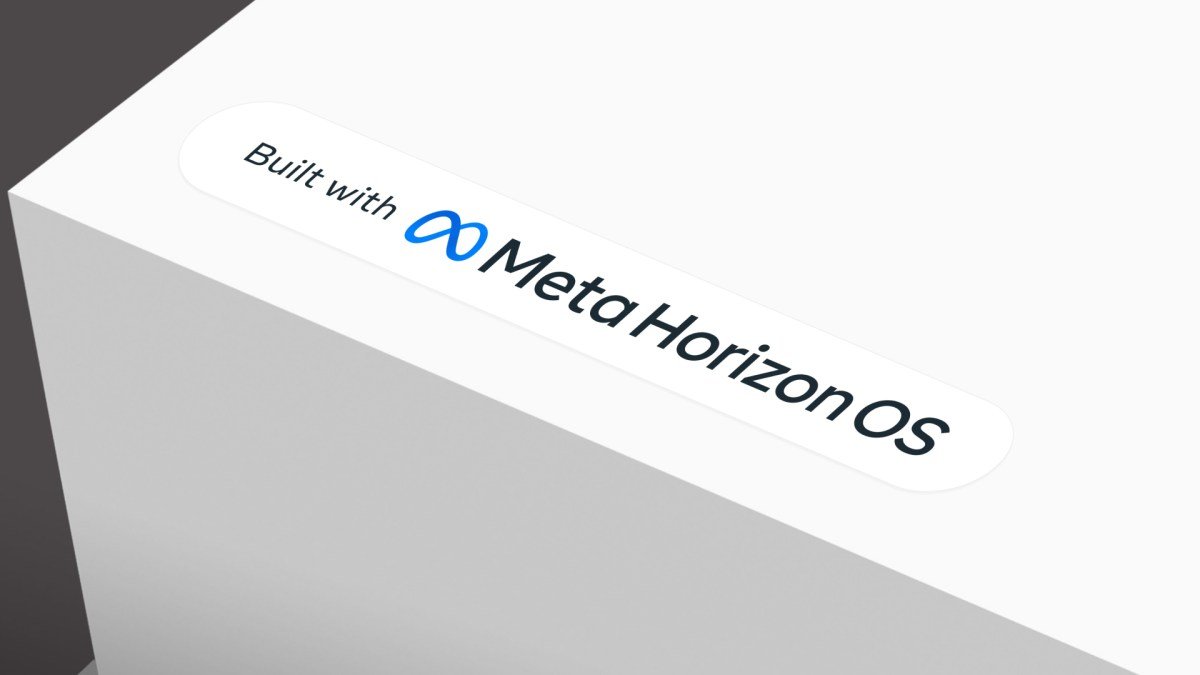Meta Opens Horizon OS to Hardware Partners to Take on Apple and Google in XR/Spatial Computing
Meta is taking the Horizon OS that powers its Quest 3 and Quest Pro headsets and opening it up to hardware licensees including Lenovo and ASUS. This could backfire by adding competing priorities to Meta’s XR team, but if it works it will pressure Google and provides a broader coalition against Apple’s Vision Pro.
It is always challenging to compete with your licensees, and Meta is absolutely not dropping out of hardware game to focus on software. In the long run, this could certainly create a larger coalition to compete with Apple and Google. In the short term, it adds cost and slows time to market. Meta is certainly farther ahead than Google on building XR platforms — you can buy a Meta Quest 3 today — but despite that, Meta doesn’t have quite the same incumbent advantage over Apple. The Apple Vision Pro was released just a few months ago, but Apple has been building AR Kit tools for years, core concepts like the gaze and pinch interface are remarkably polished, and Apple has an enormous ecosystem advantage it is just beginning to tap with its iPad apps library. Instead of focusing exclusively on the spatial computing opportunity with a vertically integrated solution of its own, Meta now has to spend a lot of time and resources making Horizon OS partner ready – everything from ensuring that every use case is covered in the OS, to documentation, technical support, and marketing resources. This is going to be time consuming. In fact, Meta CEO Mark Zuckerberg’s vlog announcement concluded, “it’s probably going to take a couple of years for these headsets to make it to market.”
Lenovo. Also ASUS and …Microsoft (Sort Of). What About LG?
When they do, the big win for Meta in its burgeoning hardware ecosystem is Lenovo, which has strong brands in consumer computing, Legion gaming, and the enterprise – including a long history in enterprise VR. The press release notes that Lenovo will be aiming to build headsets for “productivity, learning, and entertainment.” Lenovo is the world’s largest computer OEM, but it has never controlled the software on its platforms, so a partnership with either Meta or Google was inevitable. By backing Horizon OS, Lenovo is setting itself up to compete directly with its OS provider. We’ll have to wait and see how that works out in practice, especially since Meta has never really tried to build proper profit margins into its hardware.
However, Lenovo may have thought that the alternative was worse: Meta has a real product on the market today, and Meta is more trustworthy when it comes to its VR commitments. Meta has been willing to lose tens (and tens) of billions of dollars chasing its XR dreams, while Google has already launched and canceled and bought and abandoned multiple AR and VR projects over the years.
ASUS is onboard in a more limited way, specifically calling out its ROG brand “to develop an all-new performance gaming headset.” That’s an interesting way to de-risk the investment, as VR gaming is already a core use case for the Meta Quest 2 and 3, and it shouldn’t be too difficult to add some RGB, include a gaming-specific controller, and add some additional cooling – or move the compute and battery off the head entirely to allow longer gameplay.
Microsoft is included in the press release, too, but only as a content partner with XBOX streaming and a co-branding opportunity for an upcoming limited edition Quest.
The hardware partner conspicuously absent from this announcement is LG. Last month, Meta and LG announced an XR partnership that made no sense. The headline from that announcement would suggest that LG is going to use Horizon OS in upcoming LG-manufactured headsets or that perhaps Meta plans to use LG Display components in future headsets instead of Sony or others. However, the press release itself states that LG’s contribution will be webOS TV content -- not LG Display tech or LG manufacturing. It is still possible that LG will be a bigger part of the Meta hardware ecosystem, though LG’s absence in today’s press release underscores the fact that this isn’t currently the plan.
Apps and AI
Meta knows that it needs apps and experiences, and Mark Zuckerberg said that Meta is also opening up its app store. The Meta Quest Store will be renamed the Horizon OS Store, and Meta is hoping to expand entries beyond its own App Lab to Steam, XBOX Cloud Gaming, and (hypothetically) “even Google PLAY if they’re up for it.” While 2D apps may not be a deciding factor years down the road when native spatial computing apps and experiences drive usage, today mobile apps provide key utility and productivity capabilities that the XR platforms otherwise lack. Therefore, as long as Google intends to compete with Meta as an XR platform provider, it is hard to see Google opening up this core asset to Meta.
Meta did not mention AI in its Horizon OS announcement, but I will. It is still early in the age of AI, but Meta is a serious player, and Llama 3 -based Meta AI is being integrated into Meta services like WhatsApp. A simpler version of Meta AI is in beta on the Ray-Ban Meta Smart Glasses that I am wearing as I write this report. For end users, the key to AI will not only be how many trillions of parameters are in a model, but how integrated it is in their experience. Microsoft and Adobe are leading the way in making AI accessible in the enterprise (where AI is easier to monetize), but Meta is pushing AI deeply into its consumer services, and that could be a key differentiator for Horizon OS over alternatives.
Winner: Qualcomm
The big winner overall is unquestionably Qualcomm. Meta’s headsets are based on Qualcomm silicon today, and the press release specifically calls out that Horizon OS licensees will be using Qualcomm’s platforms as well. Google and Samsung are also partnered with Qualcomm for whatever it is that they are working on as well. Even companies like XREAL and TCL who are attacking this market from below with AR and wearable display glasses have announced that their products are (or will be) based on Qualcomm’s XR platform. Sony is a Qualcomm client, too, and is using Qualcomm’s Snapdragon Spaces software for its upcoming enterprise VR headset. No matter what OS or approach prevails, unless Apple takes over the entire market, Qualcomm wins.
The Competition
The current narrative around Apple Vision Pro is that it is technologically astonishing, but also overpriced, uncomfortable to wear, and there isn’t much to do in it. Most of this narrative is driven by the segment of the hype cycle we’re in: influencers got their views and clicks and returned their units before their credit card bill came due. The iPhone also went through this cycle, too, but mobile phone competitors who didn’t adapt to the new multi-touch computing paradigm eventually regretted it. Even at its current price point and weight, Apple has a huge opportunity in the enterprise, live sports, and only-in-spatial-computing experiences that have yet to be discovered. In the meantime, even on day one it is showing what multi-window productivity and entertainment spatial computing can be. Apple will do what Apple does: continue working with developers, adding missing features to Vision OS, and iterating on hardware to grow the market. Meta moving to a horizontal market approach is risky, but it is a response to Apple’s legitimate long-term threat.
Google and its partner Samsung have been quiet ever since announcing that they are working together on VR. As Apple and Meta rally developers around their platforms, it is now becoming crucial that Google raise the curtain on what it is working on. If it wants to attract partners other than Samsung – and if it wants to retain Samsung – it will need to prove that it can get to market faster than Meta, with a more compelling offering, that it will stand behind for the spatial computing era to come.
To discuss the implications of this report on your business, product, or investment strategies, contact Techsponential at avi@techsponential.com.


